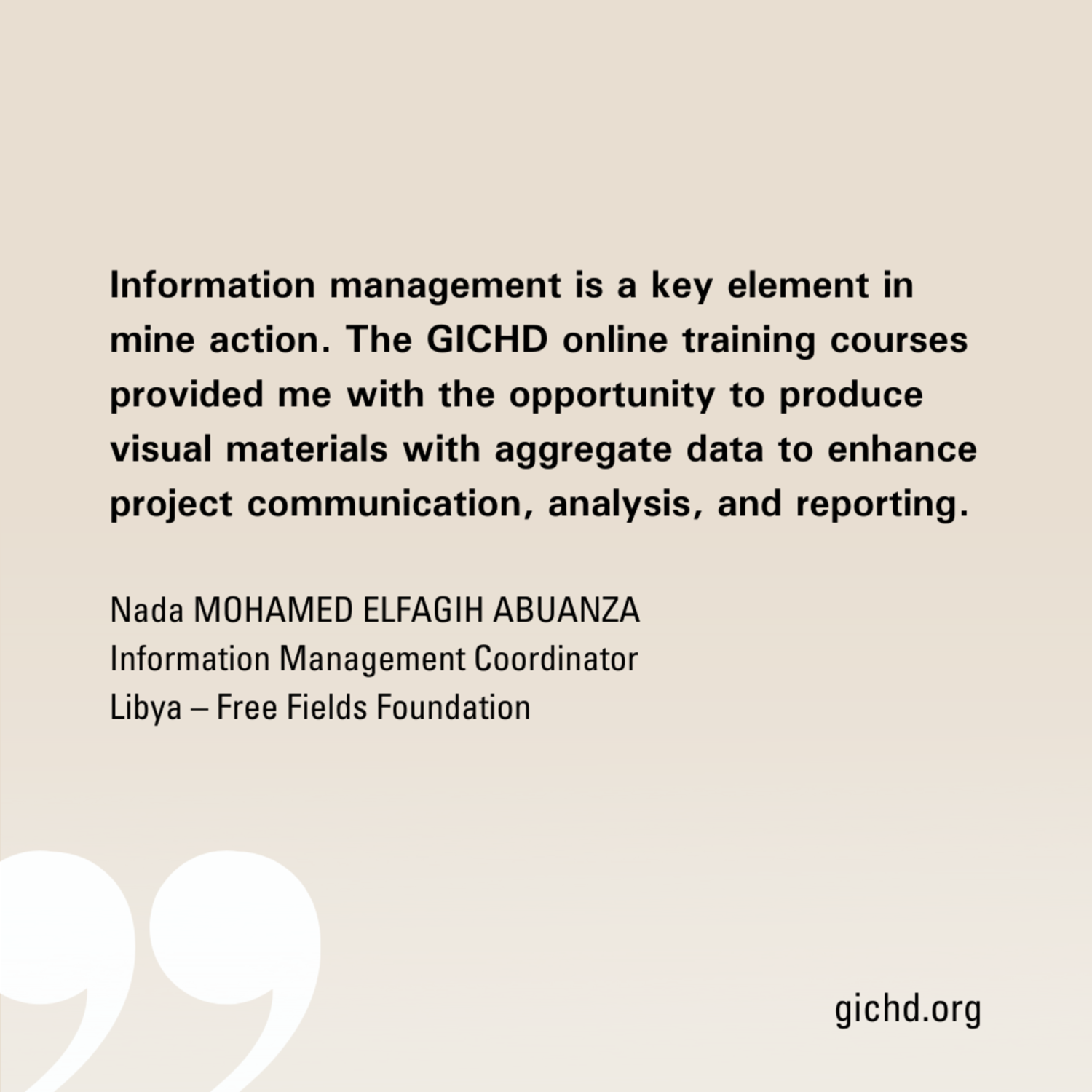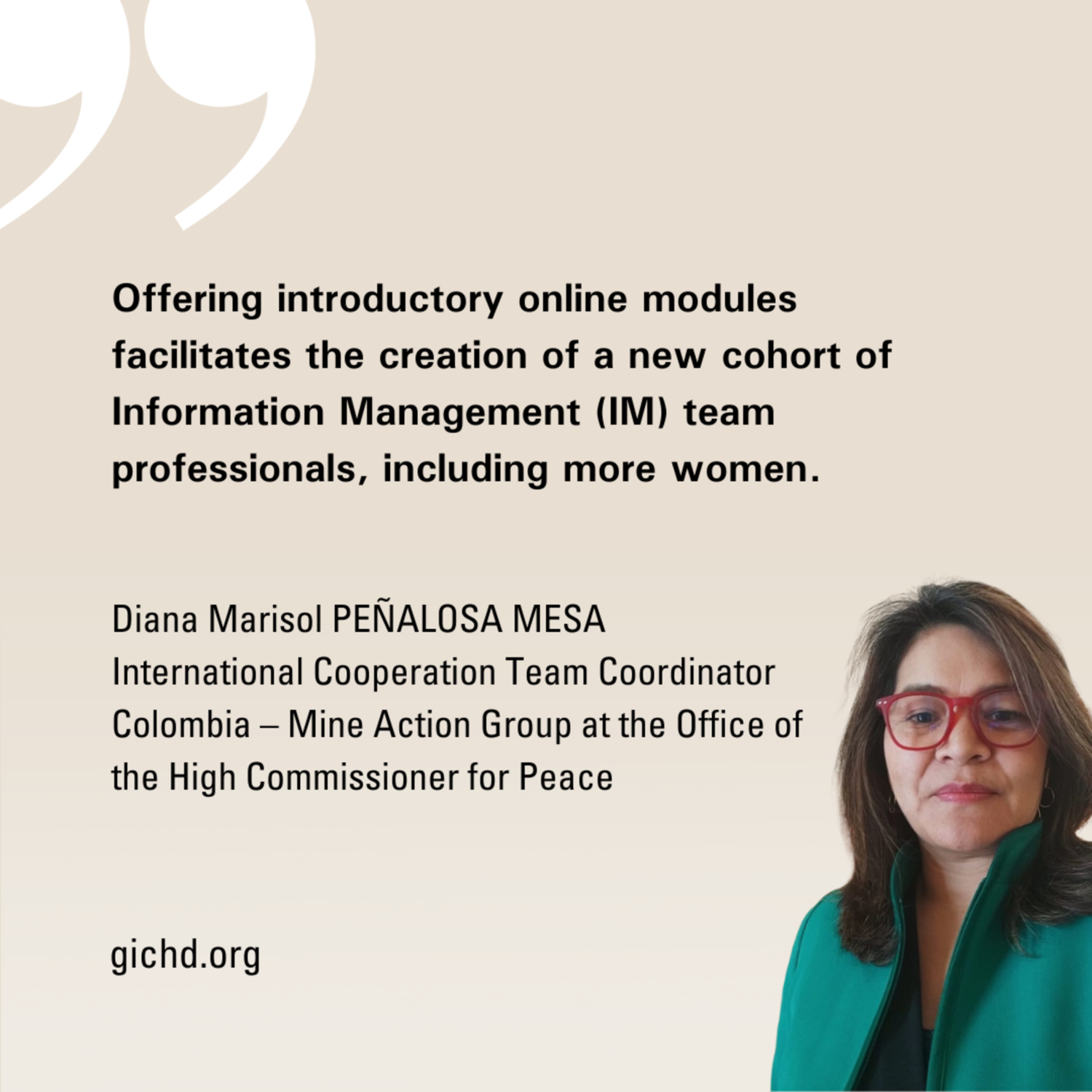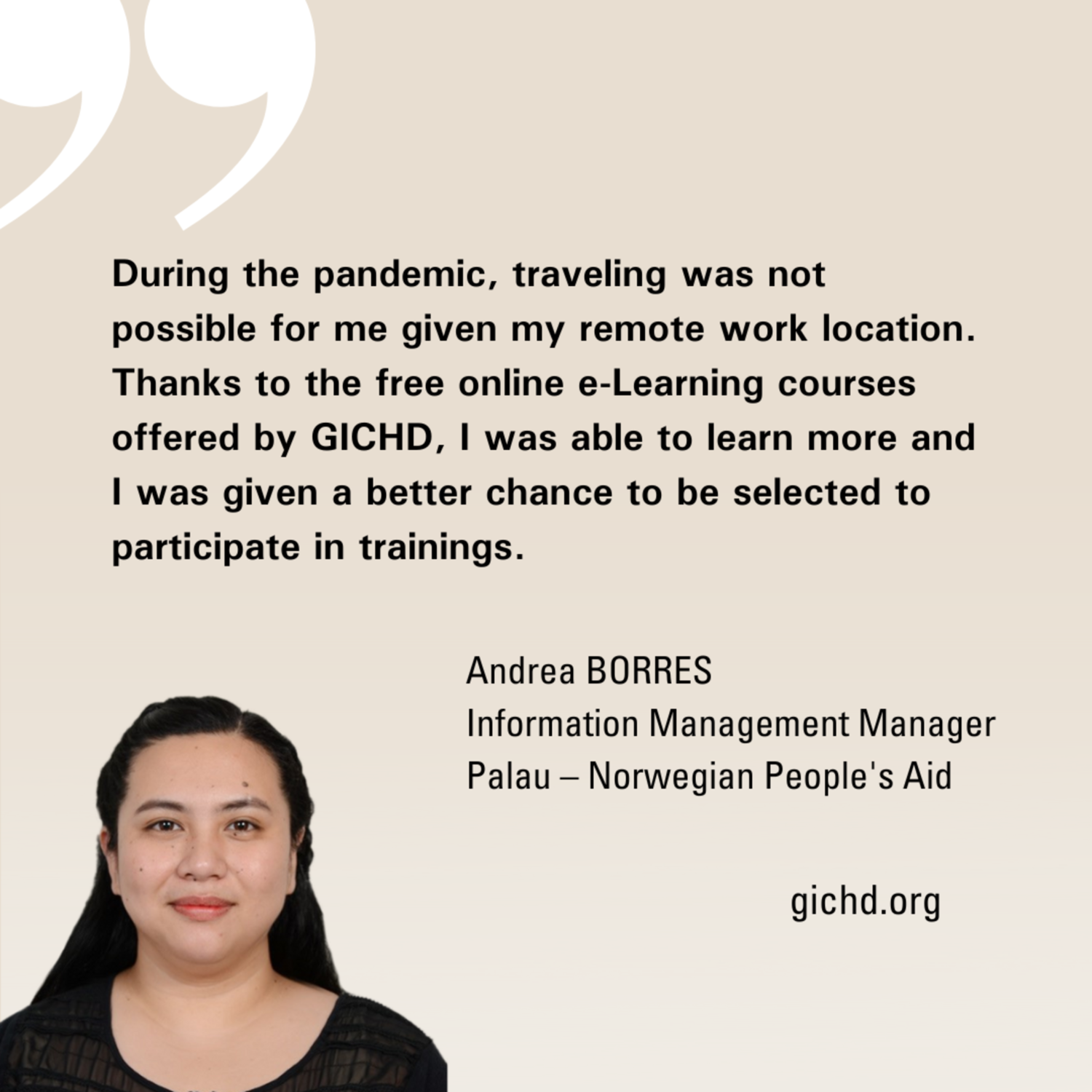Success stories from GICHD staff members and divisions
Over the last several years, the GICHD has taken continual steps to promote gender equality and inclusion, both internally and in its external work.
In 2021, the GICHD adopted the Gender Equality and Inclusion Action Plan (GDAP) 2021 to transform the objectives and commitments of its recently updated Gender Equality and Inclusion Policy into measurable, realistic targets and concrete actions.
The 2021 GDAP included targets and related indicators to track the Centre’s progress both internally and in its external facing activities. The GICHD is constantly striving towards greater gender equality and inclusion. Check out the gender and diversity achievements of GICHD’s staff members and divisions in 2021!
For more information on GICHD’s progress:
Information Management
In 2021, women accounted for 35% of applicants in information management digital training courses, compared to 14% for in-person training. The Information Management division conducted a thorough analysis of the extent to which digital training allowed for greater women’s participation, a trend which remains consistent across country of origin/ nationality of applicants and their levels of prior technical experience.
Check out participants’ feedback from IM online courses, as well as hear from Marlène Joris, Advisor, and Wendi Pedersen, GIS Solutions Advisor at the GICHD on the division’s gender and diversity achievements in 2021.



The Ammunition Management Advisory Team
In 2021, the Ammunition Management Advisory Team (AMAT) collaborated with a gender advisor: the lead policy-level training package senior consultant acted as the gender advisor for the project, thus ensuring that gender considerations were integrated throughout the training packages.
External Relations, Policy & Cooperation Programme
The IMAS Secretary’s responsibilities include the coordination and management of the process through which the IMAS framework is maintained and developed. Throughout the process, in 2021, efforts were made to ensure that the international standards consistently use and promote the use of appropriate gender and diversity sensitive terminology and practices.

Gender and Mine Action Programme
At every stage in the project cycle — from data collection to the tailoring of messages to monitoring the intervention — EORE should be gender- and diversity-sensitive. In 2021, the use of a gender- and diversity-sensitive approach was therefore one of the core principles to be promoted systematically by the EORE unit when delivering technical support to partners. It is also a central theme throughout the ‘Introduction to EORE Essentials’ e-learning course, launched in 2021. This was done with the aim of ensuring that gender and diversity considerations are systematically taken into account and mainstreamed in EORE interventions, thereby improving overall effectiveness and efficiency.
Standards and Operations
The ‘Understanding the International Mine Action Standards (IMAS)’ e-learning course was launched in 2021. The module uses illustrations representing women and girls affected by explosive ordnance. Women working in or close to the sector (country programme managers, staff of the national mine action authority or donor organisations, etc.) is also a recurrent factor. Visibility is also given to survivors of EO accidents. Generally, the module refers to women, men, girls and boys from diverse backgrounds. The course has also been designed with sensitivity to disabilities in mind, and to ensure accessibility for all.

Strategies, Performance and Impact
Gender and diversity features prominently in Iraq’s new National Mine Action Strategy. In line with international good practice, the collection, analysis and reporting on sex, age and disability disaggregated data (SADDD) are stated preconditions for the successful implementation of national strategies.
Hear from Åsa Massleberg, Programme Manager / Senior Advisor, Strategic Planning on the division’s gender and diversity achievements in 2021.
